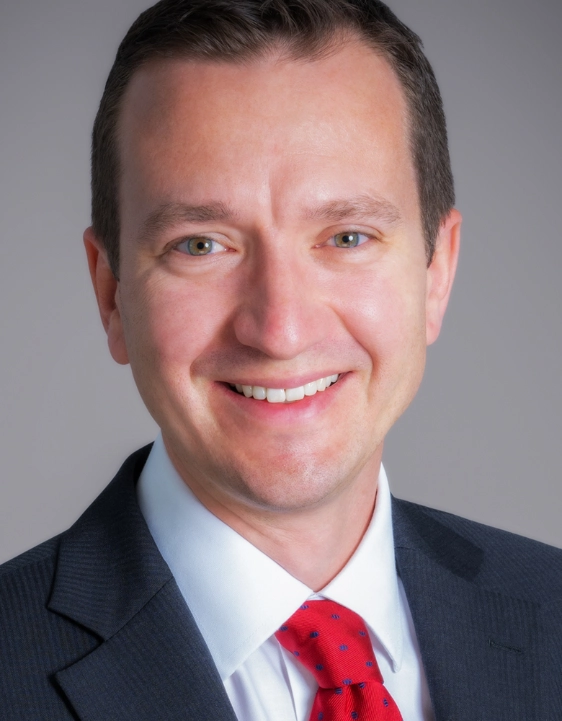Stay in the know
We’ll send you the latest insights and briefings tailored to your needs
Nick is a partner in our global arbitration team and is head of the firm’s Middle East contentious construction and engineering practice, based in Dubai. He helps owners, employers and contractors of major international projects navigate the various issues arising in construction and engineering disputes, with a particular focus on international arbitration.
I joined the firm in London as a trainee. Before I even started, I knew that I wanted to be a disputes lawyer, and my experience in my first seat, which was in the construction disputes team, confirmed that.
I was drawn to construction projects because they involve assets existing in the real world, many of which represent fantastic feats of modern engineering, like renewable energy projects, high-speed rail and skyscrapers.
Coupled with my interest in the engineering aspects, when projects do not proceed as planned – whether because of delays, spiralling costs, or defective work (or all three) – I also found the law around those issues easy to grasp and apply. People often see construction law as a dark art, but (whisper it) it's really just contract law dressed up with some grand terminology. The other big draw for me was that international construction projects naturally lend themselves to resolution by arbitration, which appealed because of the flexibility of procedure.
When I reached the stage of senior associate, I wanted to take advantage of HSF's international network and jumped at the opportunity of a secondment in Tokyo. I built up a fantastic network of Japanese clients there, and many of the arbitrations I worked on involved projects in the Middle East. My subsequent move to Dubai in 2018 was a natural next step.
The Middle East is now in the midst of a construction boom, with huge investment in particular in Saudi Arabia and the UAE, but also the other Gulf Cooperation Council (GCC) states. However, every major project suffers challenges, and we support key stakeholders to ensure disputes are resolved quickly and efficiently.
There are a number of themes that stand out in my current caseload. The first is the squeeze on contractors. The recent period of high inflation means the cost of materials and labour has skyrocketed. On top of that, the enormous opportunity in the Middle East goes hand in hand with fierce competition for work, which is leading to aggressive pricing and underbidding on some projects. Contractors are finding themselves facing a loss unless the contract or applicable law permits an adjustment to the contract price, hence we are seeing disputes about the scope of work, the cost of any variations to that scope, and price escalation clauses.
Secondly, for projects with hard deadlines, such as major international exhibitions or sporting events, delay is simply not an option. This can lead to acceleration claims when projects fall behind schedule, with contractors arguing it is the responsibility of the employer to pay for additional resource if they want to speed up the project, but employers arguing that the delay is the contractor’s responsibility. This means that expert evidence becomes crucial to ascertain the real driving causes of the delay.

Nick Oury
Partner, Head of Middle East Construction Disputes, Dubai
The third theme stems from the sheer pace of the market in the Middle East. Complex projects are being tendered with ambitious completion dates, but local markets in some jurisdictions are at capacity, and in some cases the available workforce and materials are not sufficient to meet schedule. Moreover, contractors are agreeing to forms of procurement with significant design responsibility, where the employer’s original designs are often no more than a basic concept. Without understanding or agreement as to the responsibility for and the timing of design delivery, we are seeing disputes about design development, about responsibility for delays to design, and of course, about which party should pay for any additional design work.
The arbitration landscape in the Middle East has changed hugely during my time here, with new laws enacted, institutions unveiled, and rules issued seemingly every month.
Although there was historically some uncertainty about arbitrating onshore in the UAE, the courts now have a much better track record of respecting arbitration clauses and enforcing arbitral awards, subject to very limited grounds of challenge. This has given parties a lot more confidence in the jurisdiction as a whole.
The GCC now offers a number of reputable seats, both onshore and offshore, backed by arbitration laws that closely follow the UNCITRAL Model Law, and by courts and judges that are determined to correct the historic treatment of arbitration as an exception rather than an alternative to court litigation. Coupled with the local arbitral institutions, including DIAC, arbitrateAD, and SCCA, which are led by world-class arbitration practitioners and boast some of the most up to date rules globally, arbitration in the Middle East has taken enormous strides forward.
Most of my free time seems to be spent ferrying children to swimming or tennis lessons! But when I'm not doing that, I love cycling in the desert, tearing up Dubai’s golf courses, and cooking pizza.
My handwriting would suggest I would have been an excellent doctor, but otherwise a Latin teacher or a children’s author.
The contents of this publication are for reference purposes only and may not be current as at the date of accessing this publication. They do not constitute legal advice and should not be relied upon as such. Specific legal advice about your specific circumstances should always be sought separately before taking any action based on this publication.
© Herbert Smith Freehills 2024
We’ll send you the latest insights and briefings tailored to your needs